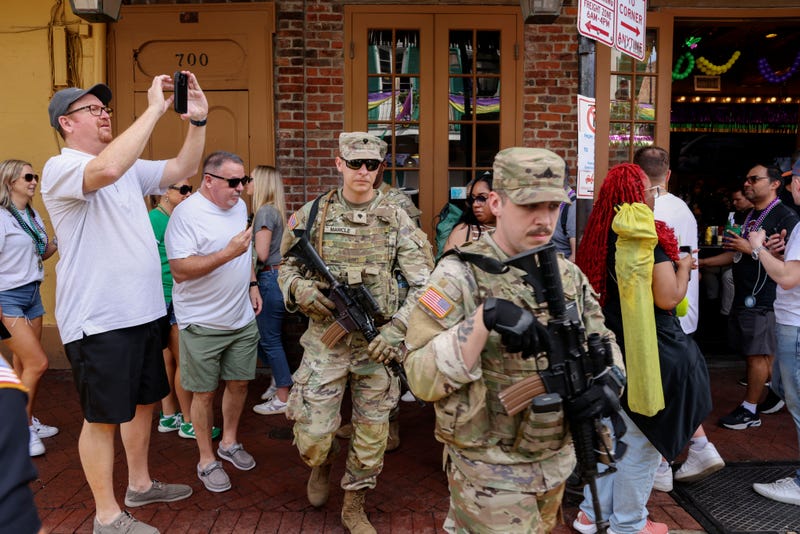
National Guardsmen patrolling New Orleans and Baton Rouge is one step closer to becoming reality.
Louisiana Governor Jeff Landry says he has formally requested from Defense Secretary Pete Hegseth the activation of 1,000 Louisiana National Guardsmen. Landry is seeking this activation under Title 32 of the United States Code, which would allow Landry to retain control of the Louisiana guardsmen’s activated while the federal government foots the bill for their activation.
“The proposed mission and scope for the Louisiana National Guard would be to deploy throughout the state to urban centers, supplement law enforcement presence in high-crime areas, provide logistical communication support, and secure critical infrastructure,” Landry wrote in his request.
According to the letter Landry sent to Hegseth, those troops “will assist in addressing ongoing public safety concerns throughout the state.” Landry requested that the guardsmen remain on duty through the end of Fiscal Year 2026.
“Louisiana currently faces a convergence of elevated violent crime rates in Shreveport, Baton Rouge, and New Orleans coupled with critical personnel shortages with local law enforcement,” Landry said in the letter. “These manpower shortages limit their ability to effectively address this public safety threat and consequently, incidents of homicide, carjacking, and gang-related violence, significantly exceed the national average. These challenges are further compounded by the states vulnerability to natural disasters, particularly hurricanes, which further strains the limited public safety resources available to local and state government.”
Landrys request comes nearly one month after the Washington Post published leaked Defense Department documents showing that President Donald Trump was creating a plan to send National Guardsmen to New Orleans and other major American cities. At the time, New Orleans Police Superintendent Anne Kirkpatrick said she would welcome the help. Other city leaders, such as Councilman JP Morrell, were skeptical, saying Trump’s plan was more about politics than public safety.
In a statement, Landry pushed back against those assertions.


